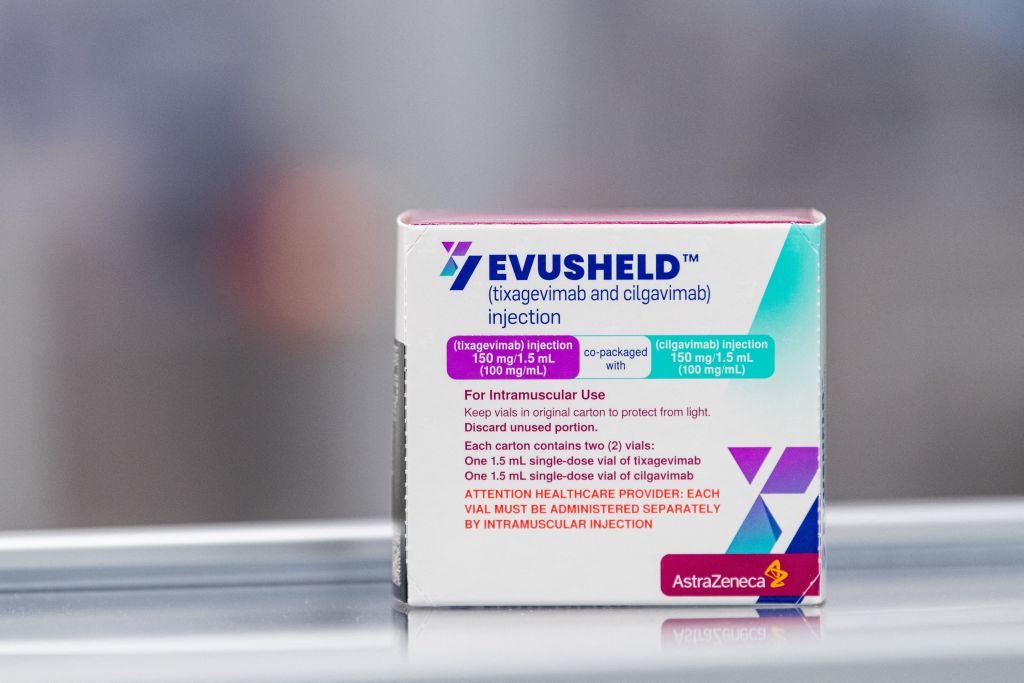
AstraZeneca Plc’s COVID antibody drug is no longer authorized for use in the U.S., regulators said Thursday, as it’s unlikely to work against strains of the virus that are now dominant across the country.
Astra’s drug, called Evusheld, was authorized in December 2021 to prevent COVID infection in high-risk people, but has been rendered less effective by the virus’ mutations.
At this point, fewer than 10% of the variants currently circulating in the U.S. appear to be responsive to Astra’s treatment, the U.S. Food and Drug Administration said in a statement.
In the meantime, Astra said in a statement that it’s testing a next-generation long-acting antibody to prevent COVID in immune-compromised people, and aims to make the drug available in the second half of 2023, pending regulatory approval. In early lab studies, the next-gen antibody was effective against all COVID variants tested, the company said, including those that have thwarted other drugs.
“About 2% of the global population is considered at increased risk of an inadequate response to COVID-19 vaccination and could benefit from monoclonal antibodies for COVID-19 protection,” the company said.
Earlier this month, the agency warned Evusheld was unlikely to work against the rapidly spreading XBB.1.5 variant, which has grown to account for almost half of the country’s COVID cases, but the drug remained on the market until now.
This hasn’t just been a problem for Astra’s antibody. A U.S. National Institutes of Health panel had recommended against using any monoclonal antibodies to treat or prevent COVID in high-risk people because of the drugs’ waning effectiveness.
Evusheld was the last antibody left on the market after the FDA revoked other drugs’ authorizations due to variants. COVID antibody drugs made by Eli Lilly & Co., Regeneron Pharmaceuticals Inc. and a partnership between GSK Plc and Vir Biotechnology Inc. have all been pulled from the market as well.
More Must-Reads From TIME
- The 100 Most Influential People of 2024
- The Revolution of Yulia Navalnaya
- 6 Compliments That Land Every Time
- What's the Deal With the Bitcoin Halving?
- If You're Dating Right Now , You're Brave: Column
- The AI That Could Heal a Divided Internet
- Fallout Is a Brilliant Model for the Future of Video Game Adaptations
- Want Weekly Recs on What to Watch, Read, and More? Sign Up for Worth Your Time
Contact us at letters@time.com